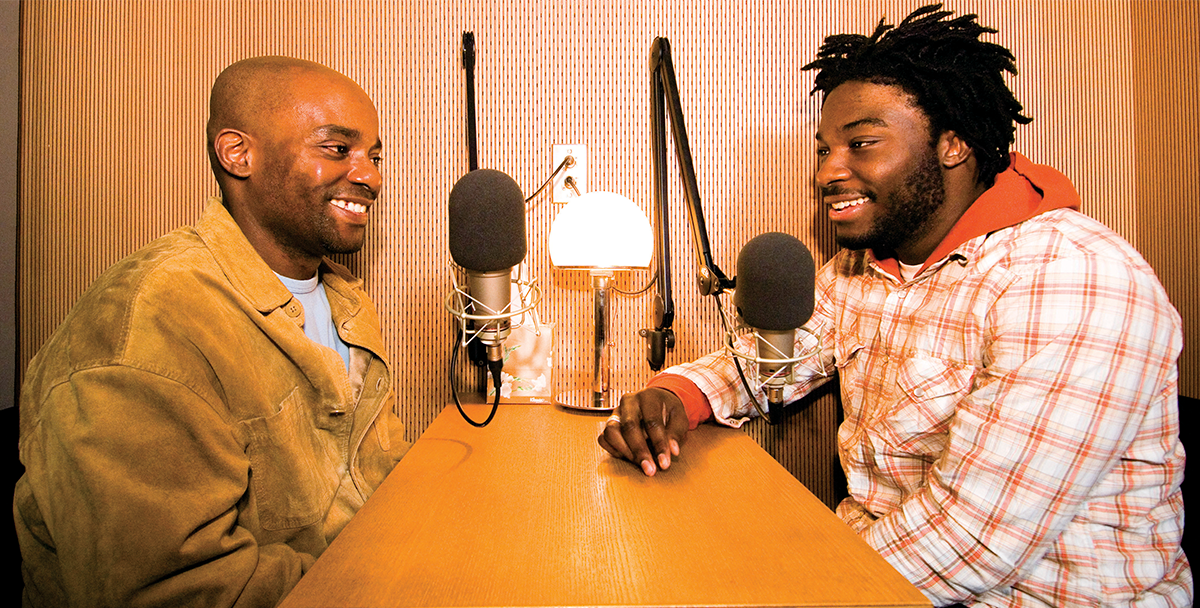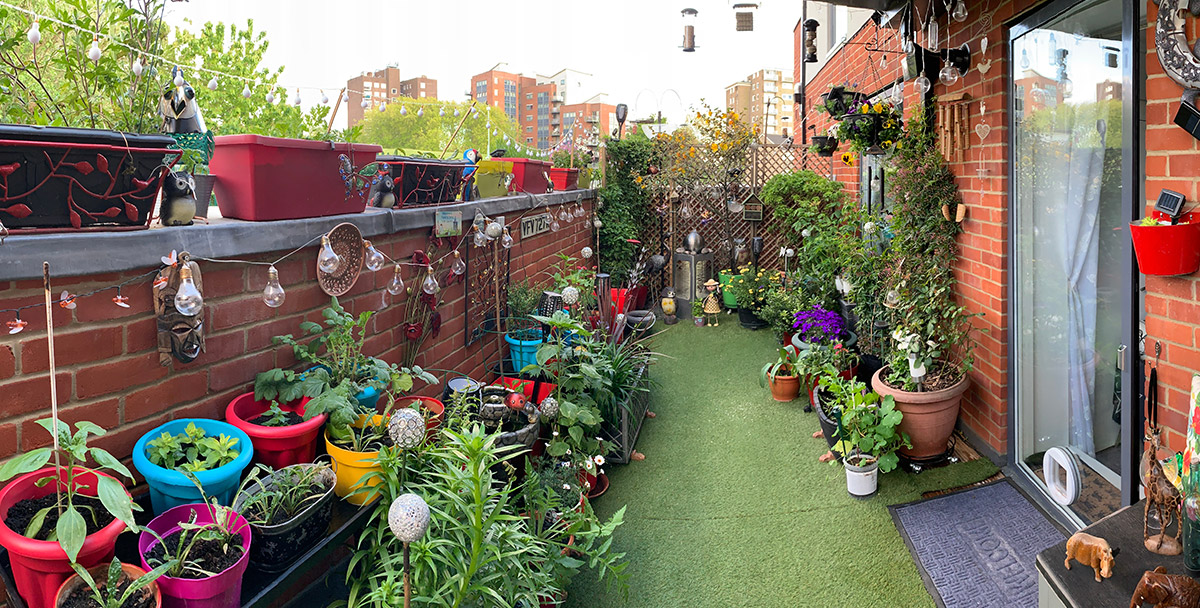This year, the Philadelphia Flower Show showcased its resplendent array of floral designs under the theme “In Full Bloom.” The event, sponsored by Subaru for 21 years running, focused on the restorative and healing power of gardening.
From a colorful backyard “she-shed” sanctuary to a buzzing pollinator garden, each display felt like an oasis – a place to pause, reflect and soak in the beauty. A sunken garden surrounded by lush greenery even featured a reflective pool. I wanted to stay there forever.
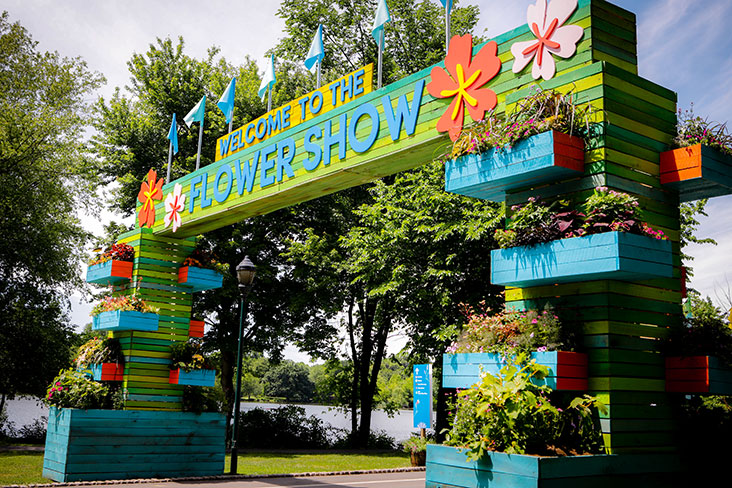
Subaru Environmental Partnership Manager Denise Coogan and Brand Partnerships Specialist Anthony Trosclair led the Subaru team and helped create the “Subaru Bloom Experience” exhibit with help from Joe Palimeno, the owner and principal landscape designer for Ledden Palimeno in Sewell, New Jersey.
Tu Bloom, the Official Botanical Artist of the Grammy® Awards, led nearly 2,500 attendees in hands-on potting parties, which have become a Flower Show tradition at the Subaru exhibit. Attendees created personal potted displays that attract valuable pollinators, such as bees and butterflies, to their home garden.
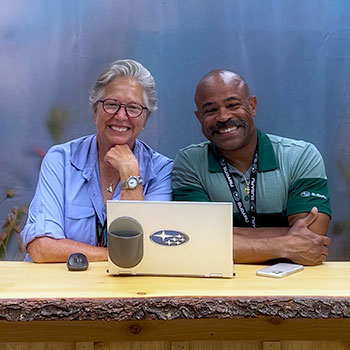
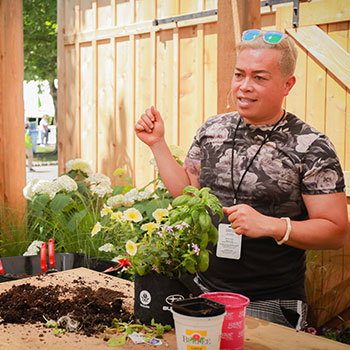
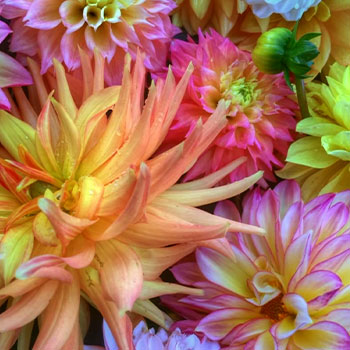
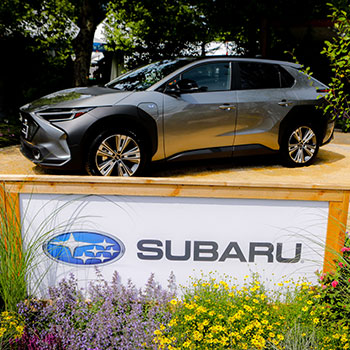
Throughout the show, Subaru delivered on its commitment to sustainability. “Subaru sponsored two watering stations where guests could refill their water bottles – greatly reducing the number of plastic bottles that would otherwise require recycling,” Coogan says. “At teardown, we also collected shrink-wrap from the show’s displays and sent it for recycling to keep it out of the landfill.”
A gardener herself, Coogan cultivates a raised bed of dahlias on the balcony of her New Jersey home. “There is something very healing about growing a garden,” she says. “It’s a great way to reduce stress – and witnessing a seed turning into a full-grown plant can create a sense of wonder that’s good for your soul.”
In my own experience as a (very novice) gardener, I’ve discovered that something special happens when I move away from the daily grind and tend to my plants. My mind quiets. I’m not affected by the stress of the last few pandemic years or the drama in the news.
Science backs this up. Research conducted by Charles Hall, Ph.D., a professor in the Department of Horticultural Sciences at Texas A&M University–College Station, and graduate student Melinda Knuth shows that plants and gardening can improve both emotional and mental health.
Coogan agrees. “When you’re gardening, you can’t think of anything else,” she says. “You’re thinking about which plant needs more water or the flower that needs more sun. Time slows down. Your mind settles.”
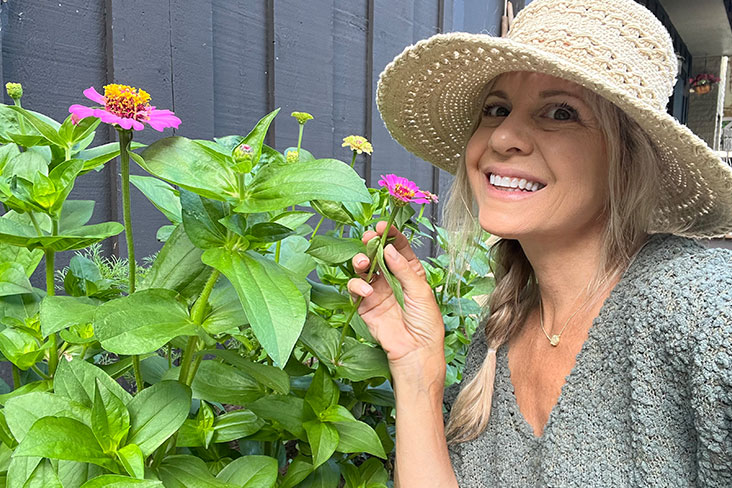
Last year, we moved to an old home in the country. With so much to renovate inside, a garden was low on the priority list. An unsightly patch of dirt near the garage bothered me, though, so for the first time ever I planted zinnias – from seeds! (Bonus: Zinnias grow quickly.) I also bought a tomato plant and placed it on the sunny side of our porch.
I look forward to watering and pruning my flowers and tomatoes every day. It allows me to escape the screens and devices I find myself immersed in for work and the piles of papers on my desk. Time taken to care for my garden translates to time nurturing myself.
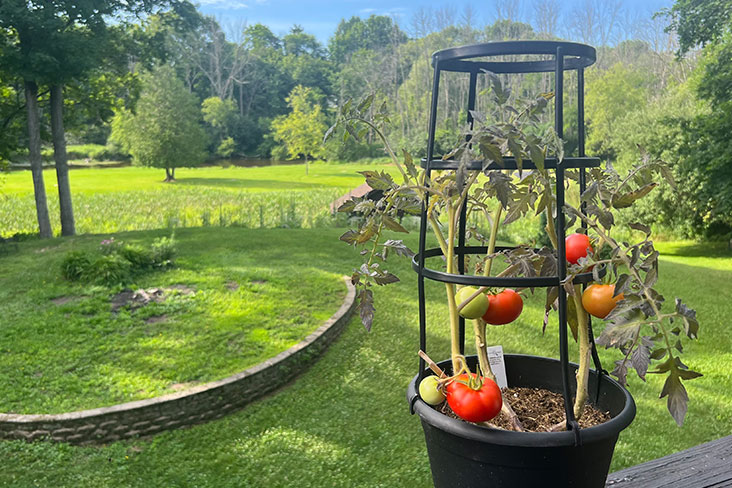
How To Get Started
You don’t have to have a green thumb or a huge yard to benefit from gardening. “Just get out there,” Coogan says. “Put a pot on your balcony or on a windowsill. Plant something, watch it grow and care for it. Open yourself to absorbing all the healing energy your plants can provide.”
I second her words. Try it. Nothing has brought me more peace or a sense of well-being than my little green haven. Gardening is not about growing perfect plants.
“It says 'I’m worthy of taking time for healing,'” Coogan says. “A garden is built on love.”



